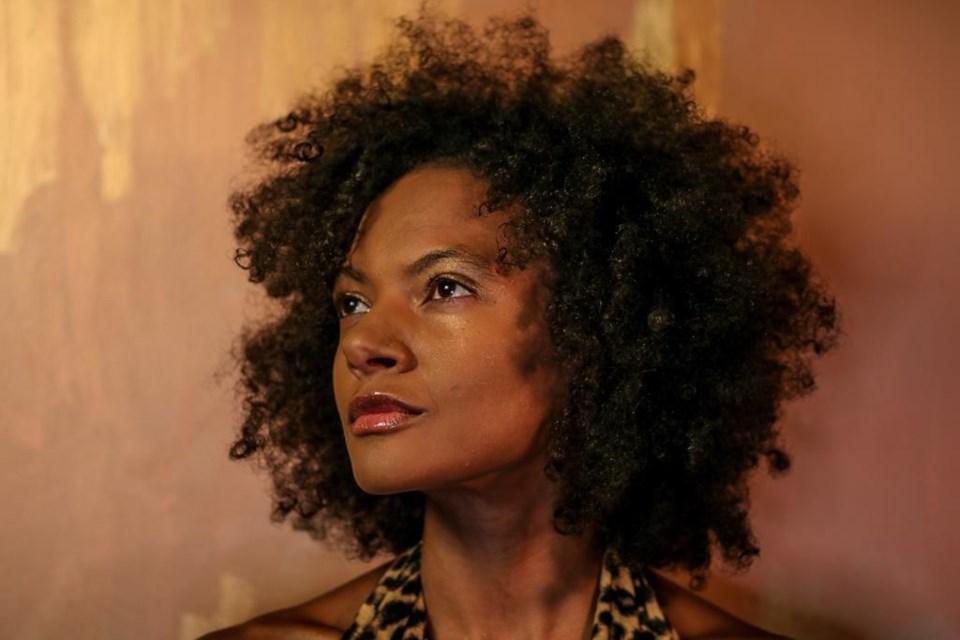TORONTO — Allison Russell says she hopes the process of writing a memoir about her abusive upbringing in Montreal will help reclaim a piece of herself she lost along the way.
The Nashville-based folk singer-songwriter is in the midst of scouring old journals and photographs to jog her memory of a time she'd rather forget.
She first shared her life story on her Grammy- and Juno-nominated debut album "Outside Child," recounting years of childhood sexual abuse that lasted until she left home as a teen and found refuge among friends and a "chosen family."
"Outside Child" earned three nominations at the Grammy Awards earlier this month and has netted Russell two at the Junos ceremony in May — one for songwriter of the year and another for contemporary roots album of the year.
Facing these positive moments has been "totally surreal," she says.
Russell is still putting her energy into self-restoration and says she's reminded of that each time the stage lights turn on and she faces an audience to share her story.
"I'm not a religious person; I don't go to temples or churches," the 42-year-old says in a recent phone conversation.
"For me, it's these nights of joyful assembly and creative communion that I'm really hooked on.... It's as close to a worship-type of experience as I get in my hopeful agnostic life."
Russell was born in Montreal to a white Scottish-Canadian mother and Black father who was a visiting student from Grenada. She spent years in foster care until age five, when her birth mother married a white man and took back custody.
"Outside Child" recounts the years of sexual abuse that followed.
Exploring folk and Americana elements, the album weaves through memories and a myriad of emotions, chief among them a resolute drive to survive and prevail. Cathartic songs "Nightflyer" and "Hy-Brasil" are rooted in soul and gospel traditions, as well as the poetic fables Russell learned from her Scottish grandmother.
The bilingual opening track "Montreal" grapples with Russell's complex relationship with her hometown, first recounting its beauty and then how a "jackal" robbed her innocence there.
She says the investigation into her past goes further with the book project.
"Going into the deep excavation of that personal history, the inwardness, and peeling back the layers – there's a rawness and vulnerability that comes out of that," she says.
"To go back and be who I was – and having to write that with truth, honesty and immediacy – that part has been hard.… (To) be that child again is not easy."
She says the research will bring her back to Montreal in May.
It's been years since she visited the city, and she supposes the trip may provoke memories of her childhood, as well as help her reclaim the city – another lost piece of herself.
"It became clear to me that I needed to revisit all the places of my youth," she says of Montreal.
"I had inescapable feelings of threat, fear and danger whenever I was there – that took a long time to work through.
"But the first time I went with my daughter when she was three, I really felt like it was my city again. I didn't have that same fear."
Russell recently began connecting with friends from her formative years and reaching out to family members who might be willing to discuss what they remember of her upbringing.
"I've been piecing it together, rationally, in a way, because there's my memories and how other people close to me remember things," she says.
"The truth is somewhere between all of them, I think."
Once the memoir is finished, Russell says she hopes to "leave the 'Outside Child' world behind."
Her next album, which she's already started writing, is about "revival." She expects it will sound "a little more groovin'" in its spirit and sound.
Some of that perspective comes from the experiences in her early 30s of reconnecting with her Grenadian birth father and learning more about her half-sister and half-brother.
"I was very lucky in meeting this family that turned out to be loving and welcoming," she says.
"That's something I'm going to be exploring more."
Follow @dfriend on Twitter.
This report by The Canadian Press was first published April 20, 2022.
David Friend, The Canadian Press



